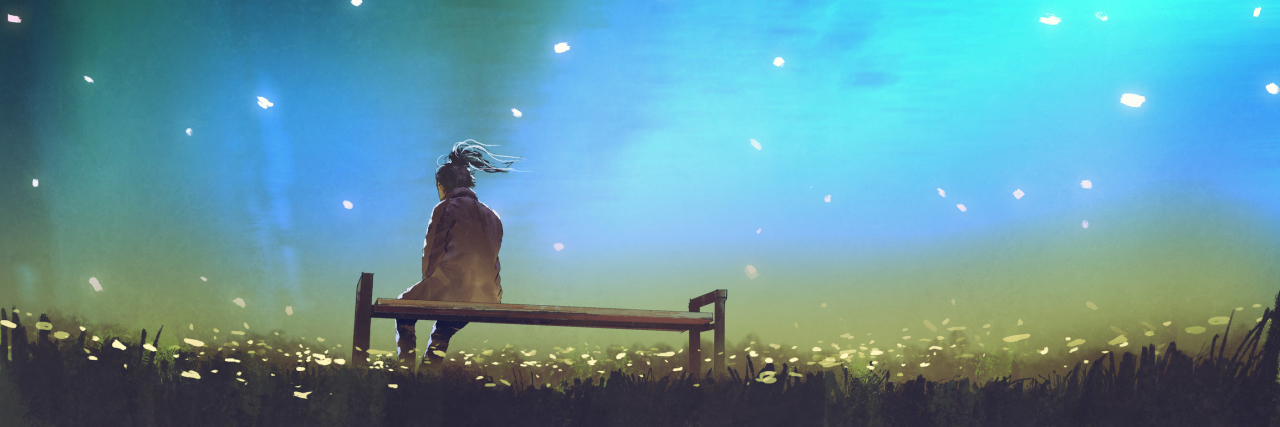'The Well Trodden Path': How Talking Openly About Vulvodynia Can Help Us Move Forward
Eighteen months after I had first been diagnosed with vulvodynia, I was sat
with my legs in stirrups while yet another gynecologist examined me. She
confirmed that my third diagnosis of dysesthetic vulvodynia was correct and
that I was on the right trajectory to manage the condition. The sensations that
I felt ranged from small electric shocks, to stinging and unbearable itching in
my vulval skin. She explained how “the nerves can misfire and make new
pathways. As the pain travels down this pathway more each day, it becomes
deeper and more embedded: a well trodden path.”
This remains the most useful description of chronic pain that I have heard
of. It seemed from my many doctor appointments and fevered research that the
medical fraternity could not accurately identify why this had happened, but the
metaphor served as a simple way of explaining the unfortunate changes in my
body. I had been diagnosed with chronic vulval pain (or vulvodynia) after a
prolonged thrush infection combined with a severe bladder infection. The
delicate tissues of my vulva recovered but the nerves had been altered causing
symptoms that ranged from constant burning to intractable itching. The new
pathways in my brain were winding and unpredictable.
The jumping around of symptoms has thoroughly confused me, my doctors and
those around me who have witnessed this journey. My symptoms at first including vulval burning combined with bladder pain had been successfully treated at one point, only to transform and become a bed of stinging nettles in my knickers. I had received two further diagnoses followed by a re-diagnosis of dysesthetic vulvodynia. Dysesthetic vulvodynia is a form of vulval pain that creates dysesthesia: an unpleasant nerve sensation.
It is certainly not life-threatening (for which I am extremely thankful) but it has impacted every aspect of my life. I have walked, with varying degrees of discomfort, many different routes to try and find an answer to this problem. These strange new pathways still exist in my brain but thankfully drug therapy keeps the trodden paths slightly overgrown, with fewer nasty flashes of pain and discomfort joining along for the journey.
The greatest challenges have been unexpected and certainly less physical:
the impact on my emotional and mental well-being was at worst life-altering and
at best destablizing; my relationships were tested with an invisible illness
that can be difficult to comprehend and my sex life was under threat.
At first I did not cope with the news that I had vulvodynia well. Uncontrollable crying and a sense that my world was coming to an end seemed a fair representation of my feelings. The stories that I read on the internet were so negative and sadly only a small proportion of the doctors that I had seen were positive in their outlook. My mental health suffered as a result of the negativity and unhelpful attitude of some medical practitioners. My savior has been a good counselor. Therapy and being able to unpick how I feel about my new condition and how to manage it was invaluable.
As my mood has changed with my physical symptoms and drug therapy, I have not always been able to be a good friend, a great colleague or a good girlfriend. Certainly at the beginning of my illness when I was contemplating how this would impact my life, there were continual waves of anger and bitterness. However, talking openly about vulvodynia, an illness that can affect 16 percent of women but that so few people speak openly about, and finding my voice enabled me to see a way forward: a way that would help me to explain my journey to those around me.
Relationships can be tested as you change and struggle as a result of an invisible illness, especially one that affects you on so many levels. At times I have weighed too heavily on those closest to me and had to step away from some situations that were too stressful, stress being a large contributory factor in vulvodynia symptoms. However, talking and writing about vulvodynia has helped to explain what it feels like and what impact it has to the uninitiated. I hope it can bring a message of thanks to those closest to me for their understanding and patience.
Finding your voice in the face of an invisible illness and being able to
bring images like the “well trodden path” into an arena outside of the clinical
treatment room can (I truly hope) bring a message to the newly diagnosed that
you can overcome, you can cope and you can thrive.
Getty Image by Grandfailure

